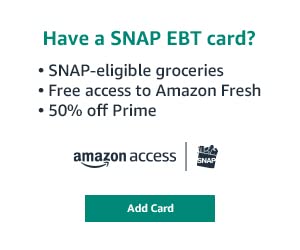In the state of Florida, the Supplemental Nutrition Assistance Program (SNAP) serves as a lifeline for individuals and families facing economic challenges, ensuring they have access to the nutrition they need.
The application process for SNAP benefits can seem complex, but understanding the required documentation is crucial for a successful application. This guide will provide a detailed overview of the documents needed for SNAP benefits in Florida, helping applicants navigate the process seamlessly.
Understanding SNAP Eligibility
Contents
Before delving into the specific documents required, it’s essential to comprehend the eligibility criteria set forth by the Florida Department of Children and Families (DCF).
Eligibility is primarily determined by factors such as income, household size, and expenses. Ensuring that you meet these criteria is the first step toward a successful application.
Required Documents for SNAP Benefits in Florida
- Proof of Identity: One of the fundamental documents required is proof of identity. This can be provided through a valid driver’s license, passport, or other government-issued identification. This step is crucial for verifying the identity of the applicant.
- Social Security Number: A Social Security number is a mandatory document for SNAP benefit applications. This unique identifier is crucial for tracking and managing benefits. Ensure that you have the Social Security numbers for all household members.
- Proof of Income: Verification of income is a key element in determining eligibility. Applicants are typically required to provide pay stubs, tax returns, or other documentation showcasing their financial situation. This step helps the DCF assess the household’s financial need accurately.
- Proof of Residency in Florida: Establishing residency is another vital component. Documents such as a rental agreement or utility bill with the applicant’s Florida address are commonly accepted. This ensures that the applicant meets the state’s residency requirements.
- Bank Account Information: To facilitate electronic benefit transfers (EBT), applicants need to provide their bank account information. This information ensures that benefits are deposited directly into the recipient’s account, streamlining the distribution process.
- Additional Documentation: The DCF reserves the right to request additional documentation on a case-by-case basis. This may include proof of childcare expenses, medical bills, or any other relevant information to accurately assess the household’s financial situation.
Understanding the Importance of Accurate Documentation
Accurate and complete documentation is critical for a smooth application process. Any discrepancies or missing information can lead to delays or even denials. Therefore, applicants are encouraged to thoroughly review the required documents list and submit all necessary paperwork to ensure a timely and successful application.
Tips for a Successful Application
- Organize Your Documents: Before starting the application process, organize all required documents to streamline the submission process. This includes creating a file with copies of identification, proof of income, residency documents, and other relevant paperwork.
- Stay Informed: Regularly check the Florida DCF website for updates on eligibility criteria and document requirements. Guidelines may change, and staying informed ensures that your application aligns with the latest standards.
- Promptly Respond to Requests: If the DCF requests additional documentation during the application review process, respond promptly. Delays in providing requested information can result in delays in processing your application.
Conclusion
Navigating the documentation requirements for SNAP benefits in Florida is a crucial step toward securing essential nutritional assistance for those in need. By understanding the specific documents required, applicants can enhance their chances of a successful application and timely approval. The Florida Department of Children and Families is committed to supporting individuals and families facing economic challenges, and with accurate documentation, applicants can access the vital assistance provided by the SNAP program.

